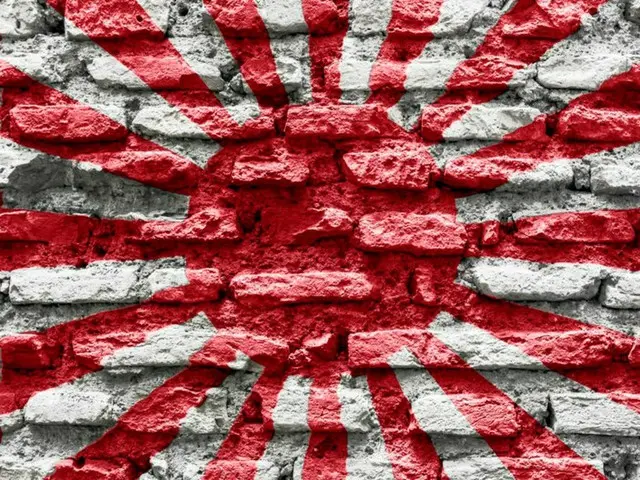On the 3rd of this month, 19 members of the ruling People Power Party in Seoul City proposed to abolish the ordinance that bans the use of the Rising Sun Flag and other flags in public places. Many Koreans have an aversion to the Rising Sun Flag,
This proposal was met with a flood of criticism, and was eventually withdrawn the following day. As mentioned above, there are those in South Korea who see the Rising Sun Flag as a symbol of Japanese imperialism, and some South Koreans have expressed their dissatisfaction with the idea that "Korea, which was invaded by Japan, should not be allowed to use the flag."
The Rising Sun Flag is a clear political symbol that recalls historical wounds. For this reason, there have been many Rising Sun Flag incidents in Korea.
In 2019, the Culture, Sports and Tourism Committee of the National Assembly of South Korea submitted a petition to the International Olympic Committee (IOC) and the Olympic and Paralympic Games to prohibit bringing the Rising Sun Flag to the Olympic venues for cheering at the Tokyo Olympics.
In response to this issue, when the IOC received a letter from the South Korean government requesting a ban on bringing in the Rising Sun Flag, the IOC responded by saying, "If a problem arises at the Olympics, we will deal with it on a case-by-case basis.
The Korean side responded by saying, "We will consider how to respond in the future." This effectively meant that the use of the Rising Sun Flag was approved, sparking protests from the Korean side. The organizing committee also said, "The design of the Rising Sun Flag is widely used in Japan,
"These items are not political or discriminatory in themselves, so they do not fall under the ban on bringing them in," they argued. The Tokyo Olympics were subsequently held without spectators due to the spread of the COVID-19 virus.
When it was decided to hold the Olympics, some Korean media articles reporting this decision commented that "it is fortunate that we will no longer see the Rising Sun Flag (at the stadium)."
The Rising Sun Flag issue has escalated in recent years, with some Koreans criticizing the designs of celebrities' clothes and corporate advertising billboards for their "resembling the Rising Sun Flag."
Recently, a Korean person living in Canada complained that the Rising Sun Flag was used in the packaging design of a new can of beer released by a famous Vancouver beer company.
They claim that the design is unfair and unfair to the Japanese people. They protested to the company, which apologized and changed the design to a new one. However, such criticism is extremely biased and completely unacceptable from Japan's perspective.
Meanwhile, in a multinational maritime exercise held in South Korea in May last year, a Japanese Maritime Self-Defense Force destroyer entered the port of Busan in the south, flying the Rising Sun Flag, the flag of the Self-Defense Forces.
At an international naval review held in October 2018 on Cheju Island in southern South Korea, South Korea made it mandatory for its MSDF vessels to fly the Rising Sun flag while at sea as a sign of nationality.
The request was made not to fly the Rising Sun flag. The two sides were unable to reach an agreement, and Japan ultimately canceled the dispatch of its MSDF vessels.
The Yun Seok-yeol administration did not consider the raising of the Rising Sun Flag to be an "international custom," and the destroyer entered the port.
"This is seen as a move in response to the trend of improving Japan-Korea relations," the report said. Meanwhile, in relation to the Rising Sun Flag, the capital city of Seoul has issued a law banning the use of symbols reminiscent of the Japanese colonial era in public places.
There is a local ordinance. It was promulgated in January 2021. On the 3rd of this month, 19 members of the Seoul City Council, who are members of the ruling People Power Party, proposed to abolish the ordinance. The city council members said, "The citizens are already opposed to it.
"There is a strong sense of imperialism and a strong aversion to symbols of imperialism, so restricting them through ordinances is going too far," he argued. However, this was met with a flood of criticism, and the party's top leader, Ha
Emergency Response Committee Chairman Han Dong-hoon also quickly stepped in to put an end to the fire, saying, "This is completely against the party's position." The move was eventually retracted the next day, but Han said he would take strict action against the lawmakers in question.
This whole affair has been reported in Japan, and internet users have commented, "They just arbitrarily banned it, arbitrarily accepted it, and arbitrarily started a fight," and "They just arbitrarily created a mysterious concept called the war criminal flag and did it themselves."
There are cold voices asking, ``What are they doing attacking and blaming each other?''
2024/04/11 15:11 KST
Copyrights(C)wowkorea.jp 5

